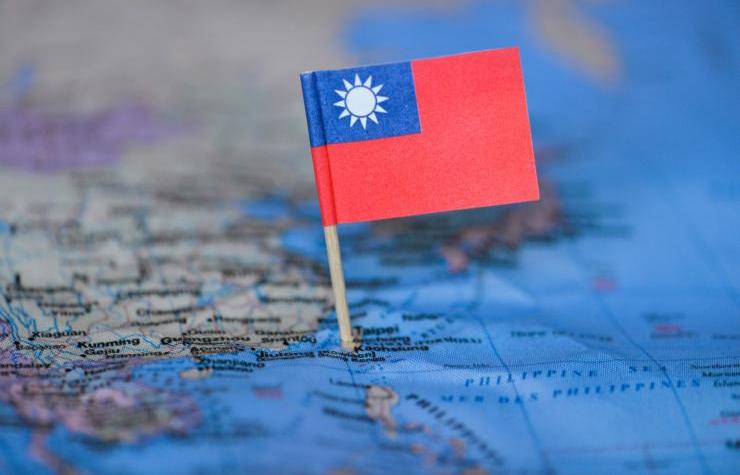Taiwan. Post-Election Scenarios.

On January 13, approximately twenty million Taiwanese went to the polls to elect the new President and the country’s unicameral Parliament (Legislative Yuan).
The selected candidate, elected with 40.1% of the votes, was Lai Ching-te, known as William Lai, a leading exponent of the Democratic Progressive Party (DPP) and former vice president alongside Tsai Ing-wen. The nationalist candidate Hou Yu-ih, a member of the Kuomintang (KMT), a party considered close to Beijing, came in second place with 33.5% of the votes. In third place, as predicted by the polls, was the Taiwan People’s Party (TPP) candidate Ko Wen-je, with 26.5% of the votes. Overall, turnout was slightly down compared to 2020, with a turnout of around 70%.
In the context of the election of the 113 members of the Legislative Yuan, the most significant element concerns the loss of the majority by the DPP, which fell to 51 seats compared to 61 in 2020.
For its part, the KMT obtained 52 seats and now represents the majority relative to the Yuan.
This result, favoured by the mixed Taiwanese electoral system, demonstrates that the Nationalist Party can still count on the support of a significant portion of the population attentive to maintaining the status quo (de facto independence, but not de iure) and to relaunching political and economic relations with China across the strait.
The TPP, which increased slightly compared to the previous elections, instead received eight seats (five in 2020), useful for making the party decisive in the legislative process. In particular, it will be essential for the new Government to find a balance for the defence budget, with the TPP acting as the balance.
Looking at the distribution of the vote, we can see how along the western coast of the island, opposite the Chinese province of Fujian, the preference clearly went towards the DPP, while the KMT imposed itself in the internal and eastern areas, historic nationalist bastions. The KMT also managed to obtain moderate results in the capital and the peripheral offshoots of New Taipei.
During the election campaign, the focus of the national and international media was on relations between the island and Beijing. However, there was no lack of debate on internal issues which especially involved the younger sectors of the population, who appeared less interested in geopolitical dynamics.
The increase in unemployment (particularly among young people), in addition to the increase in housing prices, which are growing despite the overall stagnation of wages, have therefore influenced the choices of the younger sectors of the population, who have preferred the TPP proposal compared to the two traditional parties.
Indeed, the TPP itself presented an electoral program less focused on the issue of bilateral relations with Beijing and more attentive to internal economic policy issues. Ko Wen-je, in particular, said that his Party will try to take advantage of the next four years to grow further and compete for the presidency.
The Taiwanese vote was also followed with particular attention by mainland China. In the days preceding the elections, Chinese President Xi Jinping reiterated that the issue of re-unification remains essentially inevitable. The President intends to take the island, considered a detached Province, by the centenary of the People’s Republic, in 2049, and, possibly, before the end of his mandate.
Similarly, Foreign Minister Wang Yi, on the occasion of a recent meeting with his Egyptian counterpart Sameh Shoukry, was keen to point out that the outcome of the elections does not change Beijing’s position, i.e. the so-called “One-China Principle”. The same Minister once again called on international actors to avoid interference in the internal affairs of the Nation regarding Taiwan.
Following the vote, the island state of Nauru, one of only 13 state entities to cultivate bilateral relations with Taipei, announced the interruption of diplomatic relations with the Republic of China (Taiwan) to instead guarantee its recognition of the People’s Republic of China.
In Taipei, the news was welcomed as a move inspired by Beijing, presumably annoyed by the verdict of the polls and worried by the alleged independence tendency of the newly elected William Lai. The elections in Taiwan, however, remain a topic of very high resonance in other regions of the globe.
In light of all this, there are essentially two possible scenarios expected in the coming days. The first would re-propose the usual show of force that Beijing usually implements following the perception of external provocations, similar to what happened in August 2022 following the visit of the then Speaker of the House Nancy Pelosi.
It is possible, in such a scenario, to expect the mobilization of Navy shipping in the waters of the strait, resulting in repeated violations of Taiwanese airspace by the People’s Liberation Army (PLA) aviation.
The second scenario would see Beijing demonstrate apparent disinterest in the electoral result in an attempt to delegitimize its value. Meanwhile, during his victory speech, the new Taiwanese president made a point of toning down his tone by reassuring himself about the future of relations with China, precisely to avoid excessive reactions. Lai’s words suggest that the priority for the island at the moment is to find a balance between deterrence and promoting constructive dialogue while safeguarding its sovereignty. (Open Photo: Taiwan Flag.123rf)
Vanni Filoramo/CeSI



